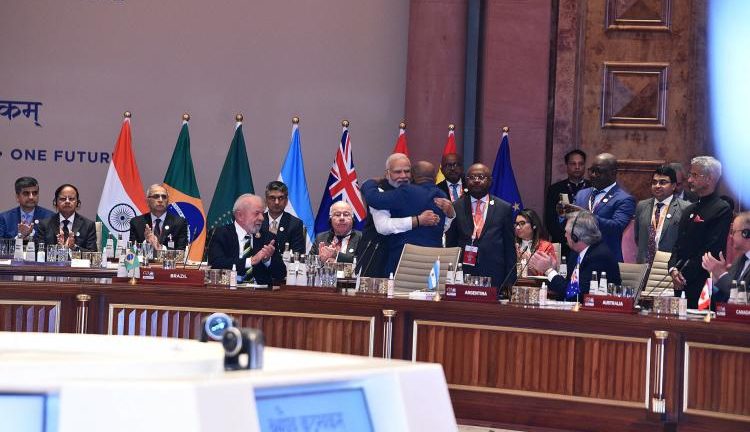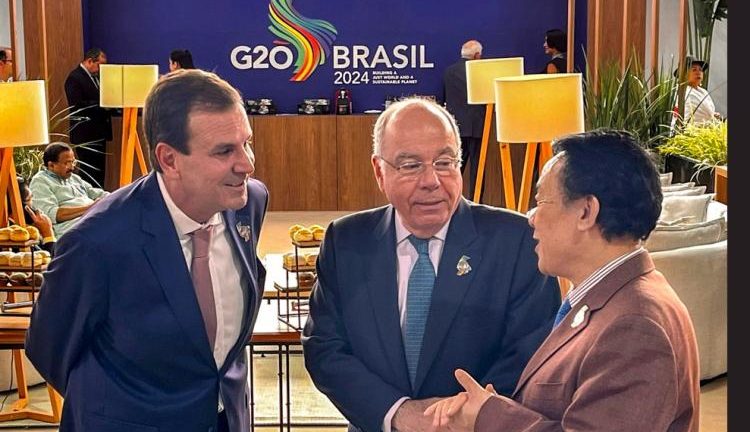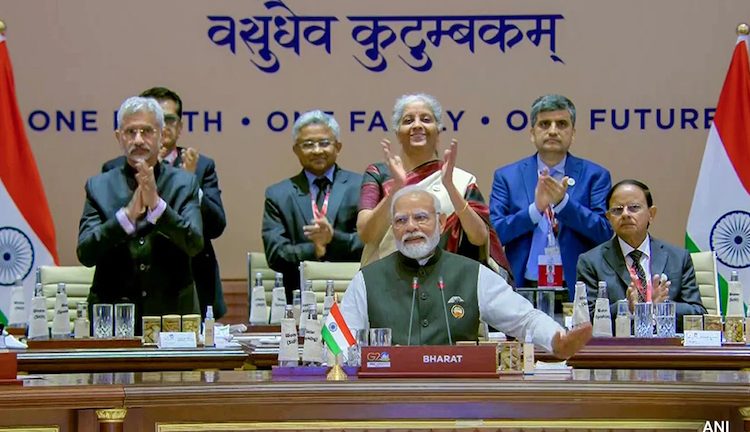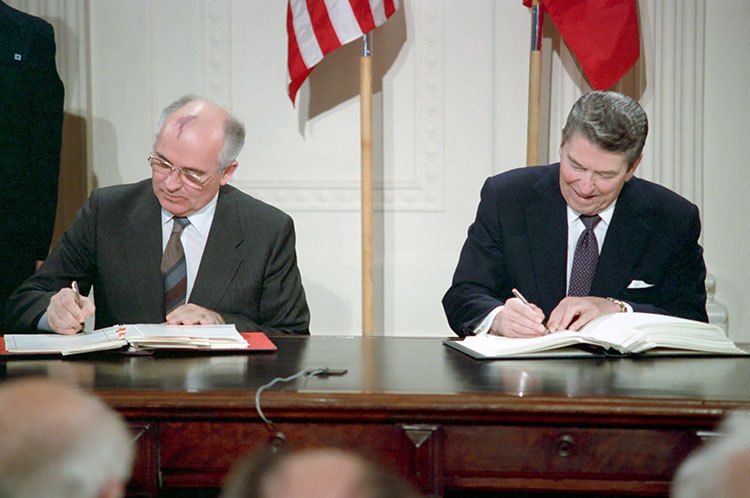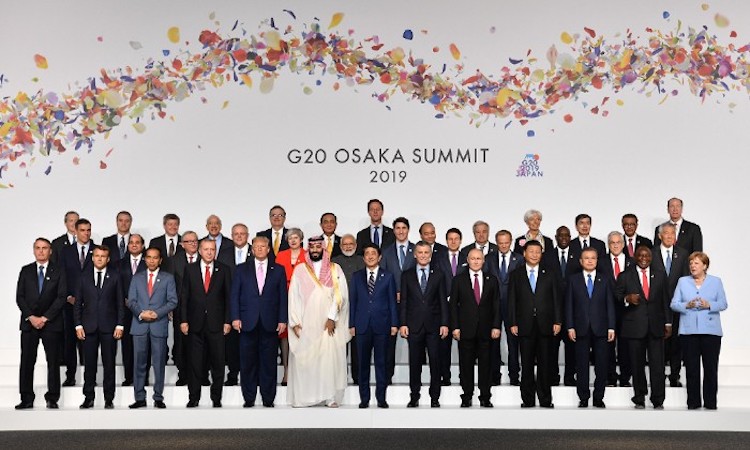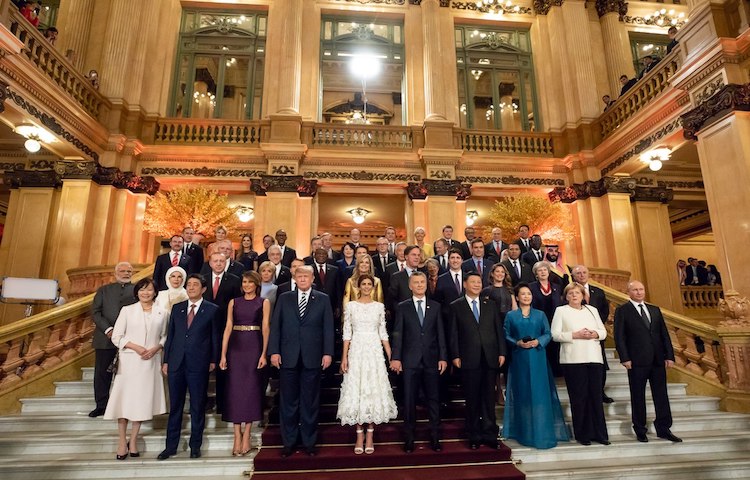By Kalinga Seneviratne* BANGKOK | 29 April 2025 (IDN) — The current international tariff saga based on a notion of “Make America Great Again” (MAGA) ideology promoted by President Donald Trump and supported by millions of Americans should, one would hope, trigger Asia’s own MAGA (Make Asia Great Again). The latter is shaping up more the […]
G20 Summit-Health: Leaders Pave the Way for Sustainable Funding of WHO
By Ramesh Jaura BERLIN | 23 November (IDN) — President-elect Donald Trump has picked Robert F. Kennedy Jr., environmental lawyer, prominent Kennedy political family member, and activist who became a leading figure among vaccine sceptics. He is expected to be a critical prop for Trump’s policies. Four years ago, as the US recorded a daily […]
Will the G20 Decide Minimum Tax on the Wealthiest of Our World?
By Sam Pizzigati* This article was originally published on Inequality.org , a project of the Institute for Policy Studies under a Creative Commons 3.0 License. NEW YORK | 4 August 2024 (IDN) — For the richest among us, life on Earth can sometimes get rather boring. But worry not for our world’s deepest pockets. At […]
G20 Grows at a Steady Pace in the Fourth Quarter of 2023
By Jaya Ramachandran PARIS | 14 March 2024 (IDN)—The G20’s Gross domestic product (GDP) grew by 0.7% quarter-on-quarter, slightly down from 0.8% in the previous quarter, according to OECD provisional estimates. G20 is an intergovernmental forum comprising 19 sovereign countries, the European Union (EU), and the African Union (AU). It works to address major issues […]
FAO Chief Pleads for Peace, Right to Food and Global Governance Reforms
By Jaya Ramachandran RIO DE JANEIRO | 23 February 2024 (IDN) — The Director-General of the Food and Agriculture Organization of the United Nations (FAO), Mr. QU Dongyu, has called for peace, recognition of the right to food, and reform of multilateral institutions as cardinal imperatives. Addressing the first session of the G20 Foreign Affairs […]
India Steers G20 Towards Supporting Global South’s SDG Push
By Kalinga Seneviratne SINGAPORE. 13 September 2023 (IDN) — In a rare demonstration of consensus, Russia and the US welcomed the New Delhi Declaration of the G20 summit on 10 September that did not condemn Russia for its invasion of Ukraine. Instead, they focused on the development challenges facing the global community. Russian Foreign Minister […]
India’s G20 Presidency: Can It Reshape International Climate Politics?
By Robert Mizo* This article was issued by the Toda Peace Institute and is being republished with their permission. NEW DELHI 5 July 2023 (IDN) — India’s presidency of the G20 for 2023 has been hailed with much fanfare and national pride in India. The G20, being a club of leading economies, accounts for 74 […]
G20 Also Needs to Act to Curb Short-Term Capital Flows and Fund Development
Viewpoint by Nagesh Kumar and Kevin Gallagher Nagesh Kumar, a former Chief Economist of UNESCAP, is Director of Institute for Studies in Industrial Development, a New Delhi based policy think-tank. He tweets @nageshkum. Kevin Gallagher is Professor and Director of the Global Development Policy Centre, Pardee School of Global Studies, Boston University, USA. He tweets […]
Four Anti-Corruption Takeaways from the 2019 G20 Summit
Viewpoint by M Emilia Berazategui The writer is Global Advocacy Coordinator at Transparency International. This article first appeared on Voices for Transparency – a collection of articles, stories, analyses and opinions from the anti-corruption movement curated by Transparency International. All views and statements represent those of the authors, and do not necessarily reflect those of […]
G20 Leaders Keep the Multilateralism Torch Alive
By Santo D. Banerjee NEW YORK | BUENOS AIRES (IDN) – Going by the 31-point G20 Leaders’ declaration titled ‘Building consensus for fair and sustainable development’, a plenty more drew the focus of the November 30-December 1 summit than preoccupation with shadow-boxing between the champion of ‘America First ‘ and the rest of the world. […]




